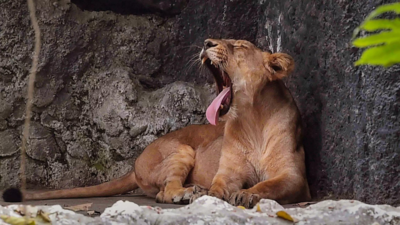A seven-year-old boy was rescued after spending five days lost in the dense and predator-rich Matusadona National Park in northern Zimbabwe.
The wildlife authority, ZimParks, confirmed the miraculous incident on Friday.
Tinotenda Pundu, a young boy from a village bordering the vast reserve, disappeared into the park on December 27. The Matusadona National Park, known for its landscapes and thriving wildlife, is equally notorious for its treacherous terrain and apex predators, including lions, leopards, and buffaloes. Many who wander into its depths often do not return.
Rangers, locals, and police initiated a frantic search for Tinotenda, but heavy rains hampered their efforts. On December 30, his footprints were discovered, reigniting hope. Early the next day, Tinotenda was found approximately 50 kilometers (about 30 miles) from his village, a testament to his remarkable survival instincts.
“Remarkably, it is estimated that he walked through the harsh terrain of the lion-infested Matusadona National Park for 49 kilometers,” ZimParks spokesperson Tinashe Farawo said in a statement. Tinotenda survived by foraging for wild fruits and digging into riverbanks to find water, a survival technique familiar to communities in Zimbabwe’s drought-prone regions.
Mutsa Murombedzi, a local lawmaker, described the boy’s survival as a miracle. “He was clever enough to sleep on perched rocks, keeping himself out of reach of lions and other wildlife,” she told AFP.
Villagers had tried to lure Tinotenda back by playing drums, hoping he would follow the sound, but it was the rangers’ expertise that ultimately led to his rescue.
The boy, frail but unharmed, was immediately admitted to a hospital. Matusadona National Park, nestled near Lake Kariba, spans approximately 1,470 square kilometers (570 square miles) and has long been a sanctuary for diverse wildlife.
According to the nonprofit African Parks, the reserve once boasted the highest density of lions in Africa and served as a crucial stronghold for elephants and black rhinos. However, for those like Tinotenda, who inadvertently venture too deep, the park’s beauty can quickly turn perilous.







